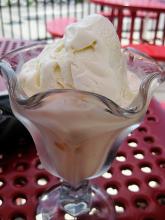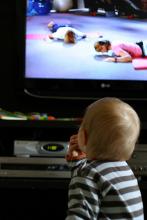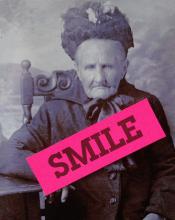Two weeks ago tomorrow marked an occasion many of you users of online banking may not have registered. But to those few Luddites (me included) who are still beholden to physical banking and mailing, it marked a disastrous revelation. My particular revelation came when I failed to open my bank doors. Confusion reigned in those first few seconds, and I pulled again. Panic. I pulled again.
Thankfully, I was gifted with the powers of reason, however late to the party they were. The lights in the bank were off. Ergo, the bank was closed. Thus, there must be a reason for the bank to be closed and, by extension, a strawman for my rage.
Upon checking my calendar, I discovered it was Columbus Day. And I discovered that Columbus Day, for some God-awful inexplicable reason, is still federally recognized.
Let's break this down. Our venerable government, that august body of enlightened individuals, still recognizes a holiday celebrating Columbus.
The man who, while he traded with the natives and could sometimes even be friendly with them (when he wanted to leave some men with them with assurances that they'd be safe), he also took them as slaves and recommended the pillage of their lands to the Spanish court upon his return to Europe.
The man who outright lied about the riches contained in the Americas-- gold lying bare on the hillsides, waterfalls of jewels, et cetera-- to shore up his credibility.
Who confused Native Americans with Indians.
Who missed what is now the United States by a few hundred miles. Who was not the first person to find the United States (the Vikings, and maybe even Polynesians). Who did not destroy preconceived notions of the world being flat (as many of us were taught), because the notion had been disproved before he was even born.
The point is, Columbus doesn't deserve veneration, much less the federally recognized sort. No, he led to the massive rape and destruction of an entire indigenous culture. And maybe we shouldn't be held accountable for that (that's up for debate), but he certainly should. He openly encouraged such actions. Columbus was born of a time of ignorance and endemic racism. Perhaps he doesn't deserve scorn, being indoctrinated with ideals of white supremacy from birth, as everybody of his time was. But surely, we should not celebrate the man.
Because the thing is, this blog is called we used to be. And how we used to be is a double-edged sword. Yes, we live in a scary time, with (arguably artificially inflated) dangers throughout the globe. But we know better now. When Columbus Day was first recognized in 1937, we had limited cultural understanding, and little desire for it. Watch a John Wayne war movie if you don't believe me, but be prepared to cringe when he refers to the Japanese as little yellow bastards. And that was years away in 1937. In 1937, we may have had little regard for the negative impact our colonization had on the indigenous people and culture. But we know better now.
"How we used to be" is a double-edged sword. We live in a scary time, yes, of upheavals and terrorism and dangers domestic and foreign (many arguably artificially inflated, but that's a discussion for another time). But we are more tolerant now. And more intelligent. We should have moved past such an unbecoming celebration that heralded decades-- centuries-- of oppression and slavery.
Also, I want one less day when the bank is closed.







